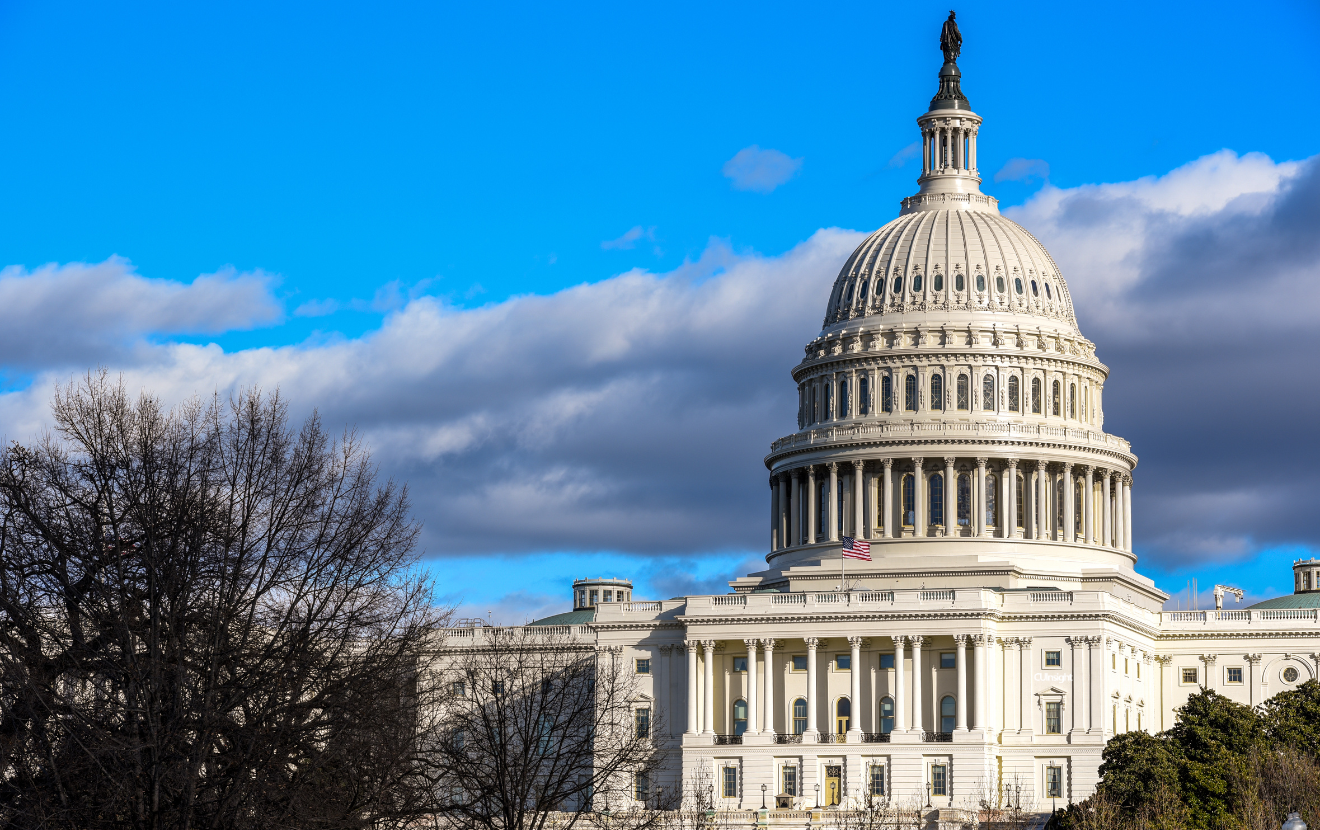It was the Senate bill heard round the credit union movement. On Thursday, July 28, Sens. Roger Marshall (R-Kan.) and Dick Durbin (D-Ill.) introduced legislation that would create new mandates on credit card issuers, affecting financial institutions across America.
Known as the Credit Card Competition Act, the bill would require covered credit card issuers to add a second network to their customers’ cards, allowing them to choose only from certain options set by the Fed.
We all remember the first time Sen. Durbin began his assault on interchange back in 2010, when he slipped the Durbin Amendment into the Dodd-Frank Act, capping interchange fees on debit card transactions for financial institutions with $10 billion or more in assets. The Federal Reserve approved a cap of 21 to 24 cents a transaction, down from an average of 43 cents that had been previously charged.
While issuers under $10 billion in assets were officially exempt from the interchange component of the regulation, downstream negative impact on interchange has indeed been felt by the small issuers.
Furthermore, a second component of Durbin 1.0 was a requirement for debit issuers – regardless of asset size – to maintain at least two unaffiliated debit card networks for merchants to choose from.
The Durbin Amendment was basically a flop … and now Sen. Durbin is attempting a do-over.
Financial Services Industry Reacts
The Credit Card Competition Act was met with forceful objections by the financial services industry. A coalition of nine trade associations – including CUNA – issued the following joint statement, expressing that “this deeply flawed legislation from Senators Marshall and Durbin will undermine the significant safeguards and security that exist today to protect credit card payments.”
The American Bankers Association said the bill goes farther than the rules put in place for debit card transactions under the Dodd-Frank Act’s Durbin Amendment in 2010, where a financial institution could choose any two unaffiliated networks:
“Another new provision of the bill not found in the Durbin Amendment is a requirement that banks accept virtually any kind of transaction, functionally requiring banks to onboard potentially many more than two networks. Fed research shows that the Durbin Amendment had a negative impact on community banks and no demonstrated cost savings for consumers.”
Let’s pause for a moment and dig into this statement. Durbin 2.0 requires financial institutions to accept – as ABA put it – “virtually any kind of transaction,” eschewing carefully placed safeguards protecting consumers and financial institutions from fraud.
To onboard “potentially many more than two networks” is burdensome, especially if smaller financial institutions are forced to comply. In a world where they’re already burdened with quickly changing compliance and regulation laws, forcing this untested strategy upon them is unnecessarily risky.
In a June 30 article, American Banker wrote that “merchants have seized on the highest inflation rate in 40 years to argue that so-called swipe fees on debit and credit card purchases are too high. Because the charges, which retailers pay to banks, are capped based on a percentage of the transaction size, they rise as price tags climb.”
The Electronic Payments Coalition—one of the nine trades that issued the joint statement above—has a webpage dedicated to informing the public about interchange. (More on this later in the article).
Examining the Components
Norm Patrick, Vice President of Advisors Plus at PSCU, explains the components of payment processing (particularly the “MDR” or Merchant Discount Rate) in this way:
The acquiring bank – the financial institution or other party responsible for processing the merchant’s card transactions – sets the MDR that gets assessed to the merchant, which generally includes the following:
- Interchange (the rate is set by the network involved)
- Network assessments and fees (rates are also set by the network involved)
- Acquiring bank fees
The acquiring bank divvies up the MDR to compensate the issuing credit union (through which interchanged passed), the network (through which assessments and fees have passed), and the acquiring bank.
Allowing merchants to route credit card payments through an unaffiliated network would introduce unnecessary risk and costs to the payments industry while failing to properly compensate financial institutions for the risks inherent in issuing payment cards.
The Argument is Flawed
Let’s explore some talking points touted by Credit Card Competition Act supporters and debunk them:
The “It Only Applies to the Big Guys” Argument
According to Senator Durbin’s website: “Banks in four-party card systems that have assets of over $100 billion cannot restrict the number of networks on which an electronic credit transaction may be processed to less than two unaffiliated networks…”
Rebuttal: With Durbin 1.0, we had a carve-out for financial institutions smaller than $10 billion. Chuck Fagan, president and CEO of PSCU, wrote in the Credit Union Times that the carve-out didn’t work, and smaller institutions took a haircut, too. While the Durbin-Marshall bill currently exempts smaller institutions, many fear that its reach may be expanded over time.
The Duopoly Argument
According to the Leon Buck, vice president for government relations, banking, and financial services at National Retail Federation: “Processing credit card transactions should not be limited to two companies when there are a dozen that can do the job just as well. Routing choice has saved retailers and their customers billions in the debit card market and can do even more in the much-larger credit card market. This is a giant step forward in bringing about the transparency and competition retailers have sought for years.”
Senator Durbin also leverages the duopoly argument, stating on his website that “Visa and MasterCard wield enormous market power in credit cards; according to the Federal Reserve, they account for nearly 576 million cards, or about 83 percent of general-purpose credit cards.”
Rebuttal: You know what’s anti-competitive? Forcing a business to sell another business’s products. Requiring a Visa-branded card to allow transactions to be routed via Discover is equivalent to forcing Starbucks to offer Dunkin’ Donuts coffee as an option.
Kim Lawrence, head of U.S. for Visa, Inc., said: “This legislation is completely unnecessary. There is thriving competition in payments: Visa, MasterCard, Amex, Discover, PayPal, Venmo, ApplePay, Square, Affirm, AmazonPay, Klarna, etc…”
The Potato/Poh-TAH-toh Argument
National Retail Federation’s website claims, “Currently, purchases made on Visa and MasterCard credit cards are only processed over the two companies’ respective networks. Under the bill, banks that issue the two brands of credit cards – the most dominant in the multitrillion-dollar payments market – would be required to allow transactions to be processed over at least two unaffiliated payment networks. One network could continue to be Visa or MasterCard but the other could be either a competing credit card network or one of several independent networks like Star, NYCE, or Shazam that offer equal security but lower fees. New ‘fintech’ processors could also be used.”
Rebuttal: Here’s a news flash. Debit cards don’t route in the same manner that credit cards do. Dean Michaels, chief strategy officer at Co-op Solutions, said: “A couple of the debit networks can handle the message format for signature debit, but even these few networks would need to complete significant additional work to support credit and there would also need to be very significant changes made by issuer processors and merchant processors to support multiple credit routing options.”
Patrick added to Michaels’ statement: “Furthermore, the networks that process PIN debit may not be as secure as Visa and MasterCard. PIN-less debit transactions routed over the PIN networks are a perfect example.”
The “It’s Good for Consumers” Argument
Senator Marshall said, “When it comes to Main Street versus Wall Street, I’ll choose Main Street every time.”
A 2017study by the Federal Reserve found that the fee cap made banks 35 percent less likely to offer free checking accounts. According to the study: “[This result suggests that] absent Reg II, 65.2 percent of noninterest checking accounts offered by covered banks would have been ‘free,’ compared with the actual post-implementation figure of 30.0 percent.”
Additionally, EPC suggests in the Myth vs Fact section of its website that merchant cost savings from Durbin 1.0 were not necessarily passed through to Main Street consumers as intended and that the legislation has negatively affected the community.
“So while Reg II essentially made the most vulnerable consumers less profitable for banks by removing valuable interchange that helped to subsidize free checking, surely the retailers passed their savings on to consumers, right?” Michaels teased. “Based on a merchant survey by the Federal Reserve Bank of Richmond and Javelin Strategy & Research which was conducted two years after the regulation was established, only 2% of retailers said they had lowered their prices because of the regulation.”
“Again, Main Street lost,” he emphasized.
I'm sorry, Senator Marshall, but these unintended consequences actually harm Main Street.And – respectfully – saying you’ll “choose Main Street every time” is vastly different than actually choosing Main Street.
Lawrence said that this legislation would cause “meaningful damage” not just to consumers and Main Street, but also overall economic growth. She lists among the collateral damage, “reduction in credit extended to consumers and business,” “less investment innovation,” and “operational burden and cost for industry, including merchants.”
“Durbin’s last effort was a windfall for large merchants and had terrible impacts for consumers,” she said. “Over 1 million consumers lost access to the banking system.”
Gail Enda, president and CEO of American Airlines Credit Union, pointed out that at the end of the day, merchants have many choices for payments.
“No one is forcing the merchant to accept cards,” she said. “And there is an argument that cards provide merchants benefits – they are not responsible for card fraud whereas they have counterfeit risk with cash and checks, and they are able to offer self-service checkout, which is not possible with cash and checks.”
Reengineering the entire payments system just to benefit a small group of the largest retailers is against the credit union philosophy in that it impedes consumers’ access to safe, affordable credit. As the nation heads into a possible recession, reliable access to safe, affordable credit is not only critical, but a driver of the U.S. economy. This legislation is unnecessary, unwarranted, and will cause smaller financial institutions and their members to suffer.
As American consumers and small businesses are recovering from the economic impact of the pandemic, eliminating financial institutions’ freedom of choices and risking consumers’ security is pouring salt on our wounded economy.
Co-author: Tanya Dittberner
Contributors: PSCU, Visa, Co-op Solutions, and American Airlines Credit Union







